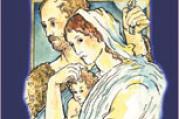Click here if you don’t see subscription options

In Good Faith
In his carefully reasoned examination of the recent case of the conjoined twins Jodie and Mary (12/2), Daniel P. Sulmasy, O.F.M., M.D., criticizes British medical arrogance, narrow pastoral advice and judicial bullying. This is unfair.
I too deplore the doctors and courts removing this excruciating moral dilemma from the parents. And I regret that the courts supported the surgeons’ conviction that sacrificing Mary to save Jodie was the lesser evil. But the doctors and the judges, no less than the parents, acted in good faith.
First, the surgeons, bound by their profession to save life wherever possible and to seek the maximum good, acted out of this conviction and not from anti-religious prejudice. (Indeed, as we have just learned, one of the three surgeons at St. Mary’s Hospital is Catholic and another is evangelical.)
Second, while it is true the British judicial system is excessively influenced by utilitarianism and consequentialism, the appeal court made strenuous efforts to accommodate sanctity-of-life premises, and even took the unprecedented step of receiving ethical guidance from the Catholic Church. The judges accepted four out of five of the arguments made by Archbishop Cormac Murphy-O’Connor of Westminsteralthough they used them to come to a different conclusion.
As for narrow pastoral advice, I cannot see how the counsel offered by the church to the parents of the Siamese twins, either here or in their native Malta, could have been different. As Sulmasy accepts, double-effect doctrine does not apply in this case: Mary’s death was the means of prolonging Jodie’s life.
The basic Catholic premiseexplicitly upheld in European but not British lawis that the prohibition against taking innocent life trumps the obligation to preserve life whenever possible. If this view is narrow, the bedrock of civilization may not be as broad as we believe.
Austen Ivereigh



<I>Rejoice! Your kindness should be known to all (Phil. 4:3)

The Lord has done great things for us; we are glad indeed (Ps. 126:3)
For you are God, my savior, and for you I wait all the day (Ps. 25:4)
The Lord has made his salvation known (Ps. 98:2)
“My kingdom does not belong to this world” (Jn. 18:36)

